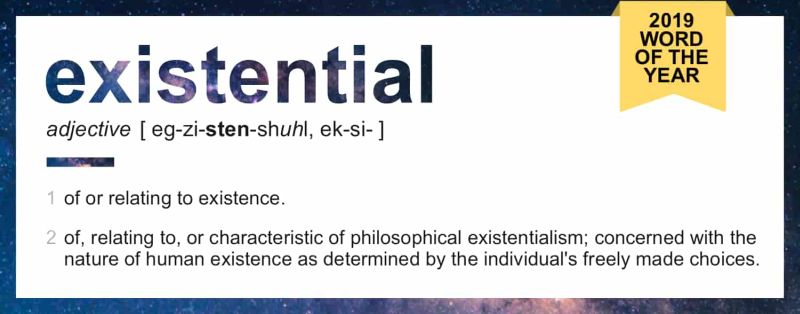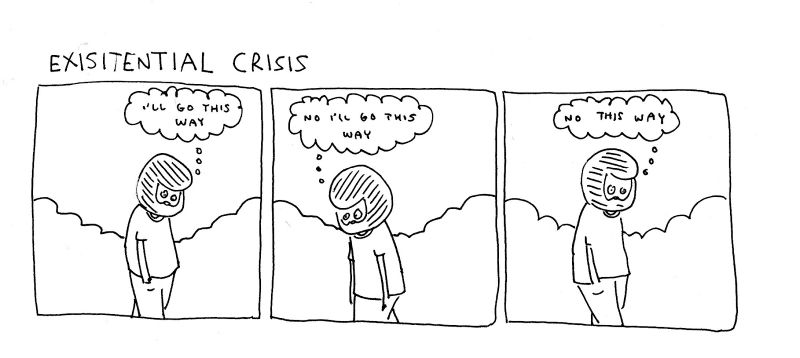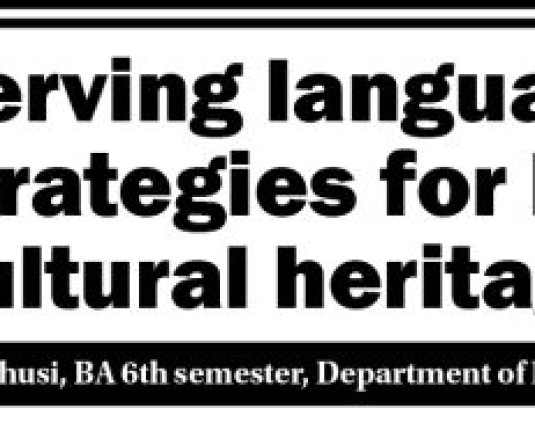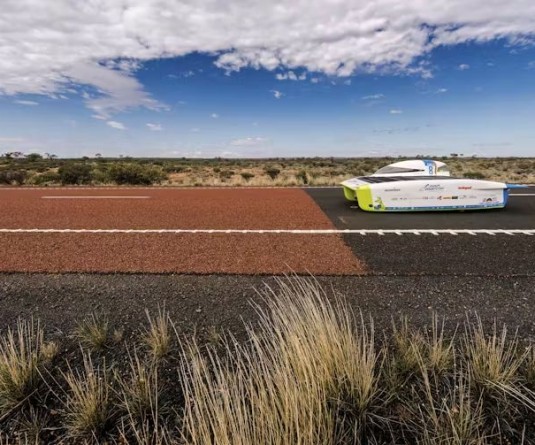1



What were the words of the year (WOTY) for 2019? Wikipedia entries informed that WOTY “refers to any of various assessments as to the most important word(s) or expression(s) in the public sphere during a specific year.”
The German tradition, Wort des Jahres was started in 1971 and the American Dialect Society's WOTY is the oldest English-language version, and the only one that is announced after the end of the calendar year, determined by a vote of independent linguists, and not tied to commercial interest, it added. Various other organisations also announce WOTY for a variety of purposes.
The WOTY compiled below from five leading Dictionaries across the globe, however, have one common trait – the concerns over environment and climate change. Most lexicographers in the past couple of years reported maximum searches related to climate change and environment.
Oxford Dictionaries: Climate Emergency (noun)
Oxford Dictionaries has declared “climate emergency” the word of the year for 2019, following a hundred-fold increase in usage heightened public awareness of climate science and the myriad implications for communities around the world.
The word generated enormous discussion of what the UN Secretary-General has called ‘the defining issue of our time,’ Oxford said on its website.
Climate emergency is defined as Oxford Dictionary as: “A situation in which urgent action is required to reduce or halt climate change and avoid potentially irreversible environmental damage resulting from it.”
“Our research reveals a demonstrable escalation in the language people are using to articulate information and ideas concerning the climate. This is most clearly encapsulated by the rise of climate emergency in 2019,” it added.
Collins Dictionary: ‘Climate strike’ (noun)
Collins Dictionary picked WOTY as "Climate strike" after Collins’ lexicographers observed a one-hundred-fold increase in its usage in 2019.
According to Collins, ‘Climate strike’ was first registered in November 2015 when the first event to be so named took place to coincide with the UN Climate Change Conference in Paris.
It took off just over one year ago with the actions of Swedish schoolgirl Greta Thunberg and which has grown to become a worldwide movement, it said.
Collins defined ‘Climate strike’ as “a form of protest in which people absent themselves from education or work in order to join demonstrations demanding action to counter climate change.” It is the second year in a row that an environmental term has been picked as word of the year, after "single-use" in 2018.
Cambridge Dictionary: upcycling (noun)
Another word related to concerns over environment and climate change, upcycling was Cambridge Dictionary’s WOTY 2019.
This word was chosen based on the Word of the Day that resonated most strongly with fans on the Cambridge Dictionary Instagram account, it said. The number of times upcycling has been looked up on the Cambridge Dictionary website has risen by 181 per cent since December of 2011, when it was first added to the online dictionary, and searches have doubled in the last year alone.
The word upcycling – defined as “the activity of making new furniture, objects, etc. out of old or used things or waste material.”
Dictionary.com: existential (adjective)
According to Dictionary.com, it WOTY 2019 actually speaks to a broader theme of threat and crisis reflected not only in culture and news, but also in the dictionary work throughout this year.
It defined existential in two senses. The first is “of or relating to existence.” Entering English in the late 1600s, this existential is often used when the fact of someone or something’s being—its very existence—is at stake. For instance, does climate change pose an existential threat to humanity?
The second sense of existential is “concerned with the nature of human existence as determined by the individual’s freely made choices,” it added. First recorded by the early 1900s, this existential is related to existentialism, “a philosophy that affirms our individual agency in making meaningful, authentic choices about our lives.”
Merriam-Webster Dictionary: ‘They’ (pronoun)
“Our Word of the Year for 2019 is they. It reflects a surprising fact: even a basic term—a personal pronoun—can rise to the top of our data,” merriam-webster.com noted on its website.
‘Lookups for they increased by 313% in 2019 over the previous year,’ it said, adding Nonbinary ‘they’ i.e. - relating to or being a person who identifies with or expresses a gender identity that is neither entirely male nor entirely female - was prominent in the news this year.
‘They’ is defined in four senses:
1: those ones: those people, animals, or things
2: used to refer to people in a general way or to a group of people who are not specified
3: a—used with a singular indefinite pronoun antecedent or to refer to an unknown or unspecified person with singular indefinite pronoun antecedent.
b—used to refer to a single person whose gender is intentionally not revealed
c—used to refer to a single person whose gender identity is nonbinary.
American Dialect Society’s Word of the Decade: They
The American Dialect Society (ADS) has voted neutral pronoun "they" has been voted word of the decade, beating out other contenders that included "climate" and "meme," AFP news agency reported
"They" is used in English by a growing number of non-binary individuals, people who do not identify as either male or female. They prefer the plural neutral pronoun to bypass the traditionally male "he" or female "she,” it said.
The singular use of “they” was previously designated as the 2015 WOTY by the ADS.
(MExN)





